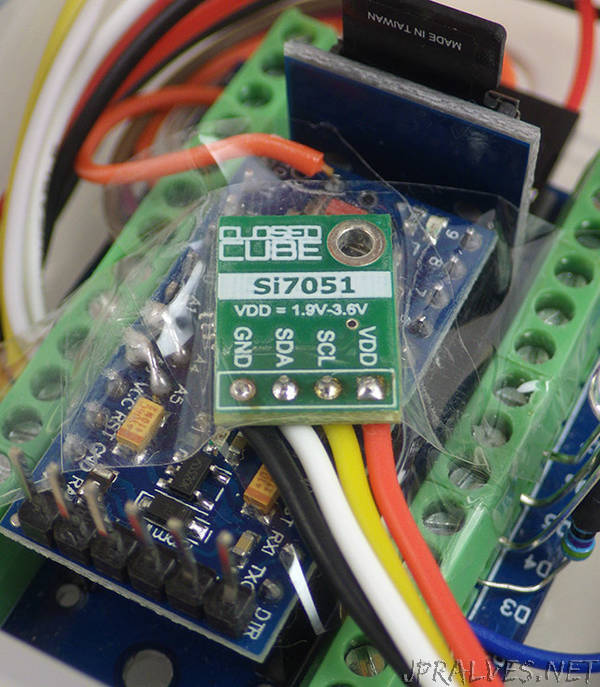
“Most micro-controllers use a quartz crystal oscillator to drive the system clock, and their resonant frequency is reasonably stable with temperature variations. In high accuracy applications like real time clocks even that temperature variation can be compensated, and last year I devised a way to measure temperature by comparing a 1-second pulse from a DS3231 to the uncompensated 8Mhz oscillator on a Pro Mini. This good clock / bad clock method worked to about 0.01°C, but the coding was complicated, and it relied on the ‘quality’ of the cheap RTC modules I was getting from fleaBay – which is never a good idea.
But what if you could read temperature better than 0.01°C using the Pro Mini by itself?
The 328P watchdog timer is driven by a separate internal oscillator circuit running at about 110 kHz. This RC oscillator is notoriously bad at keeping time, because that on-chip circuit is affected by external factors like temperature. But in this particular case, that’s exactly what I’m looking for. The temperature coefficient of crystal resonators is usually quoted at 10–6/°C and for RC oscillation circuits the coefficient is usually somewhere between 10–3/°C to 10–4/°C. There’s plenty of standard sensors don’t give you a delta that large to play with!”
